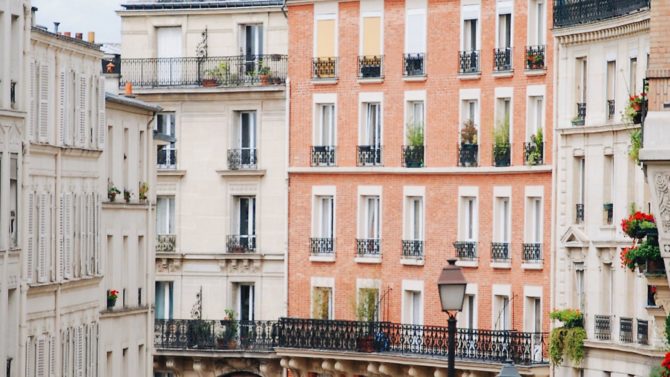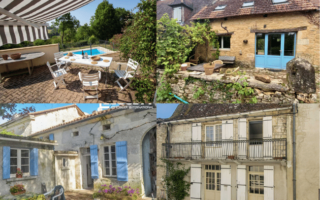All you need to know about buying an apartment in France

There are a number of considerations and legal issues to consider when buying an apartment in France – a legal expert explains the main ones including copropriétés and the Loi Carrez
Romain Candela is a Diplômé Notaire at Sykes Anderson Perry Solicitors London
When buying an apartment in France, the main lesson is to take action early on if you feel things are ‘not right’ or you have any concerns. Be suspicious if a property is an obvious bargain as this can mean there is a problem in waiting!
Ask about planning and administrative issues at the local mairie
It is a good idea at the outset to make enquiries at the local mairie regarding any planning matters or administrative disputes which might affect the property. Remember, however, that replies obtained cannot necessarily be relied upon for compensation purposes if later found to be inaccurate. The key is to ask the right questions in writing as there is no standard enquiry form. In the UK a local search is obtained before exchange of contracts but in France the rough equivalent is obtained after the preliminary contract (such as a promesse de vente or compromis de vente) has been signed. The best approach is not to be pressurised into signing any documentation by the estate agent and to make all your enquiries at the mairie before you sign anything. After signing the contract you will have the benefit of a 10-day cooling-off period during which you can withdraw from the sale and be refunded any deposit without having to give a reason. It is best to avoid having to go down this route though.
____________________________________________________________________________
Don’t miss
The legal process of buying a French property
French property buying contracts: a brief guide
____________________________________________________________________________
Be aware that there may be pre-emption rights
The most common pre-emption right is in favour of the mairie, which applies to many properties. If this exists, the notaire has to give notice to the mairie that the property is to be sold and ask the mairie if it wants to buy it at the same price (and conditions). This right is rarely exercised in practice. Completion of the sale cannot take place earlier than two months or before the notaire has been informed that the mairie does not wish to purchase the flat. If the mairie decides to purchase, you will recover any deposit paid to the estate agent or notaire.
Vices cachés/hidden defects
If a French flat is more than 10 years old, you will acquire it in its existing state and condition at the date of the conveyance and you will have no recourse against the seller regarding the state of the building or fixtures and fittings. The seller gives no guarantee as to hidden defects, which are known as vices cachés. After completion of the purchase, you may be able to claim against your seller for hidden defects but it is a slow and arduous process as you would have to prove that, among other things, the seller knew of the defect (so it was therefore not a hidden defect) but did not disclose it to the buyer, and/or acted in bad faith. Typical situations where this may arise are when the seller has built the house him or herself or undertaken major renovations and is aware that the works do not conform to the correct norms or that the materials used were sub-standard; or that the apartment and its appendices were constructed illegally. This guarantee does not extend to the usual surveys, as described below, and you only have a period of two years from the date of the discovery of the defect to take action.
____________________________________________________________________________
Don’t miss
Where to buy a bargain city apartment in France
The role of the notaire in the French property buying process
____________________________________________________________________________
The Loi Carrez
The Loi Carrez (named, not for the unit of measurement, but for the minister of housing who introduced the law) is a protective measure for buyers of apartments in France (it doesn’t apply to houses). The contract relating to the purchase of a property must state the surface area of the flat, in square metres. In 1996, a law was passed establishing a standard way of measuring that size, defining what is and is not ‘liveable’ surface area. If, after you purchase the flat, you discover that there is more than a 5% difference between the stated surface area indicated in your purchase contract and the actual surface area of the property, you have up to one year to contest the sale. The seller is legally bound to reimburse you for the difference and if the surface was certified by an expert, they are similarly liable for the error.
Surveys and diagnostic reports
In France, the profession of surveyor as understood in the UK does not exist. You can still ask permission from the seller for their apartment to be inspected by an architect or other building professional prior to making a decision to proceed with the purchase, at your own expense. There are various ‘diagnostic searches’ in France. These are mandatory although some do not have to be undertaken depending upon the age of the flat. If the flat was built before 1 January 1949, the diagnostic searches cover lead, termites, asbestos, energy performance, gas, electrical risks and ‘natural, mining and technological risks’. The diagnostics are carried out by specialist companies that produce reports which are obtained by the seller, not the buyer.
____________________________________________________________________________
Don’t miss
Buying a French apartment en copropriété
The inspection reports you should have when buying a French property
____________________________________________________________________________
Service charges
In 2014 a new law came into force (Loi ALUR) to protect owners and buyers relating to an apartment sale. When the contract is signed, your seller is obliged to provide you with certain documents and information about their apartment, including the règlement de copropriété (rules and regulations of the copropriété), which was often not previously provided until the day of completion of the sale. In a small co-ownership or copropriété, it is important to establish that the co-ownership is correctly functioning with no disputes, that the building is insured as a whole and that the co-ownership manages this type of expenditure for all owners.
What is a copropriété?
Apartments are always owned in copropriété. This mean that you will therefore own a lot (unit) of the apartment block, which will include your private living area (partie privative) together with a notional share in the common parts of the apartment block. On completion of the purchase, you will become a member of the copropriété, along with the owners of the other units, and will be entitled to vote on matters affecting the flat. If it has been recently renovated, we recommend you check whether the règlement de copropriété has also been updated to take these changes into account.
Do you have the right to rent out your apartment?
In Paris, the mayor is taking an increasingly tough stance on short-term lets (limited to 120 days per year if the flat is your main residence). French law gives the mayor the power to require a landlord to pay compensation for the loss of a permanent home. The amount varies according to the location of the flat. The obligation on landlords to pay is widely ignored in Paris, but the maire has recruited inspection staff to control abuse. Infringement of the law is subject to a fine of up to €25,000. Before signing a contract, we recommend you check whether or not the règlement de copropriété authorises short-term lets.
Like this? You might enjoy:
Which French cities offer the best investment for property buyers
Share to: Facebook Twitter LinkedIn Email


